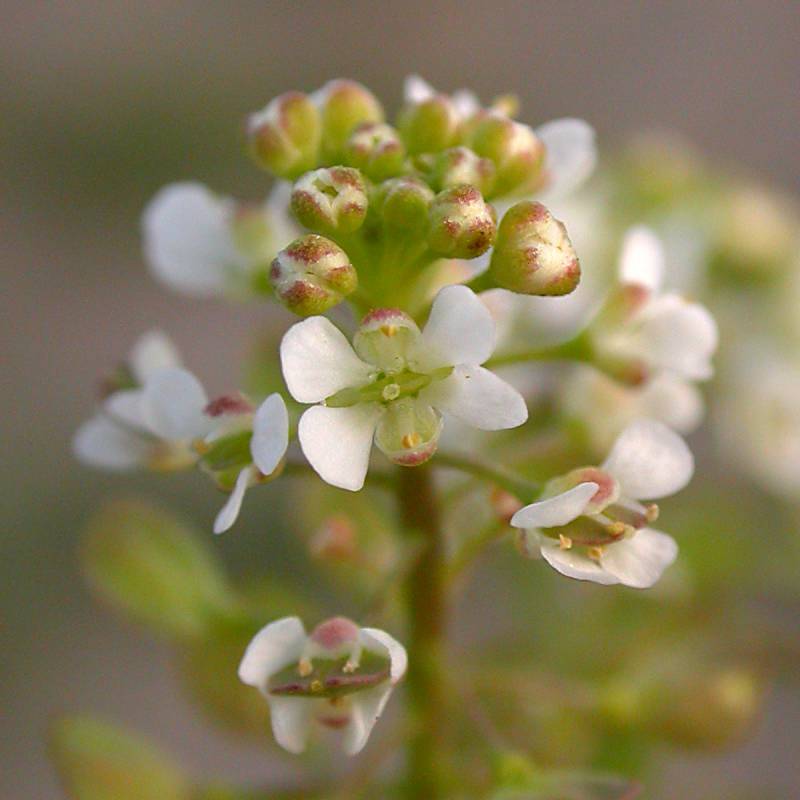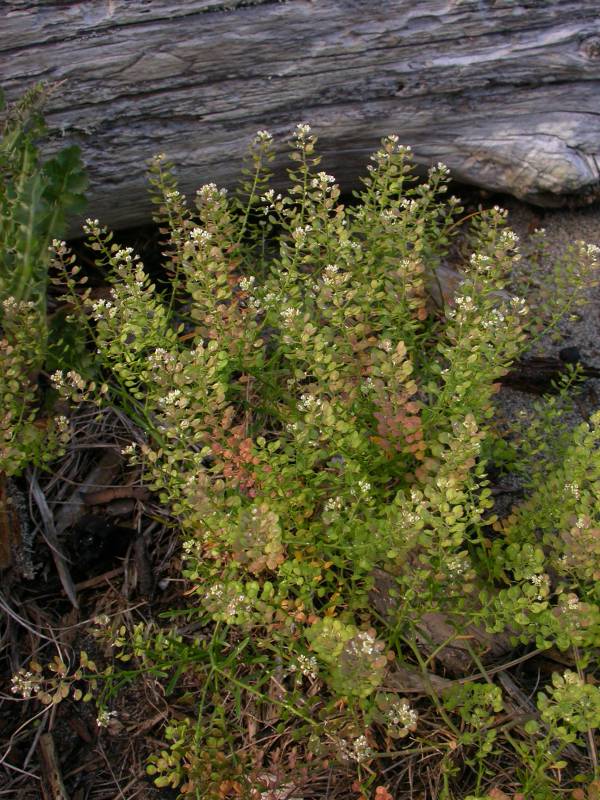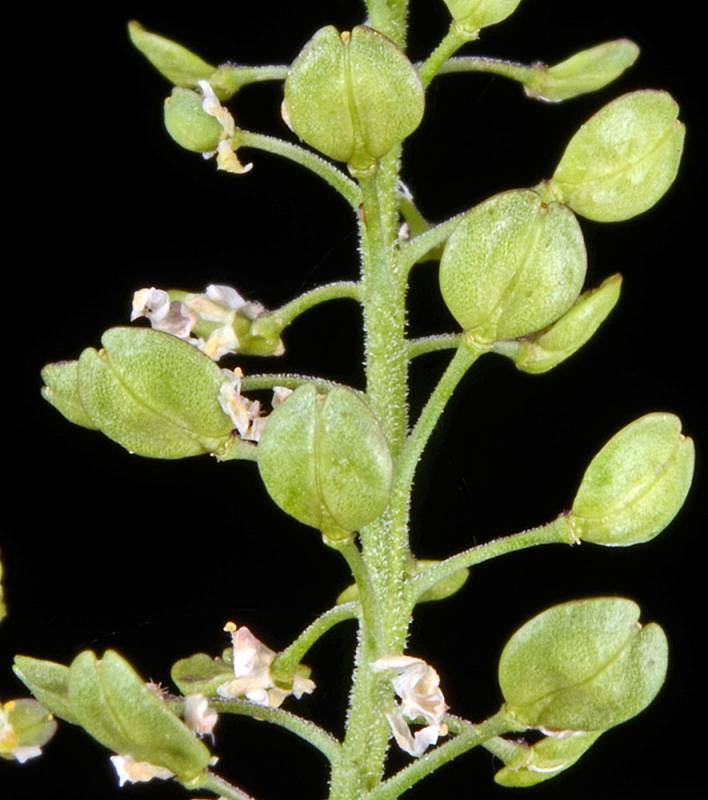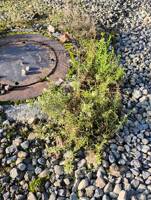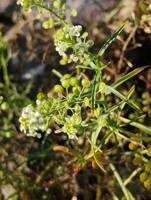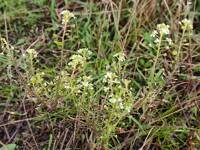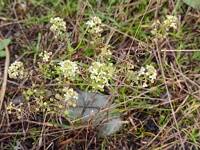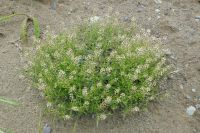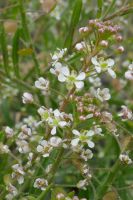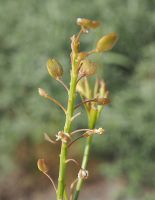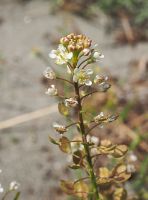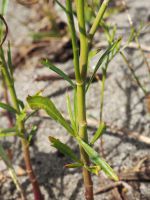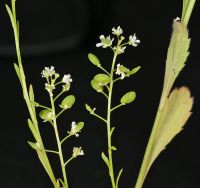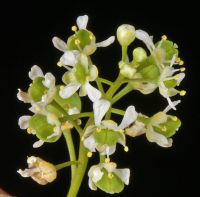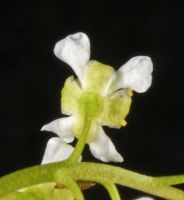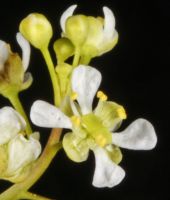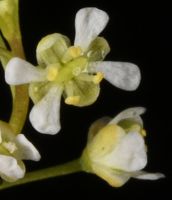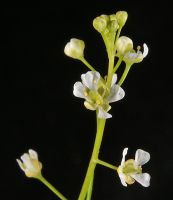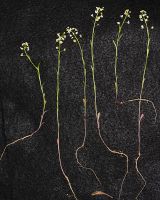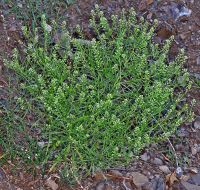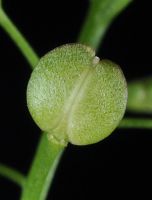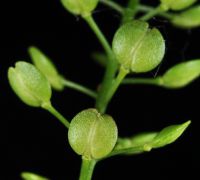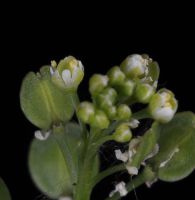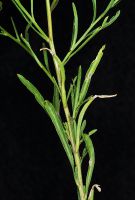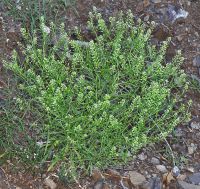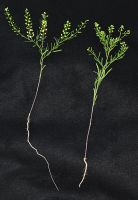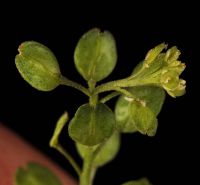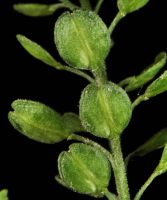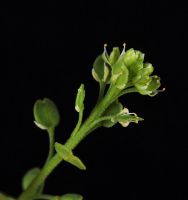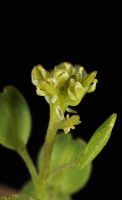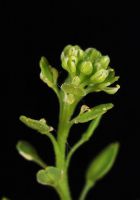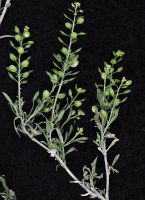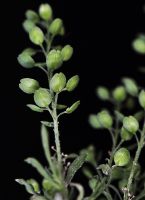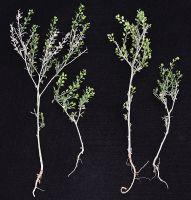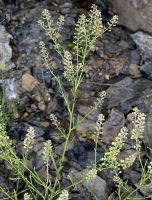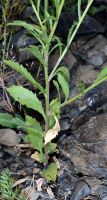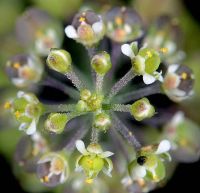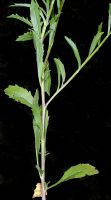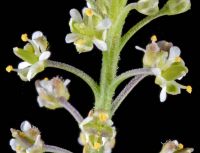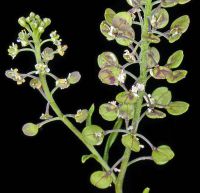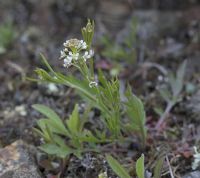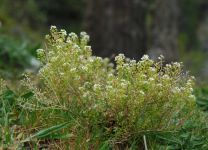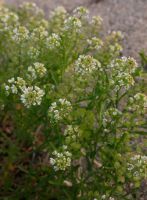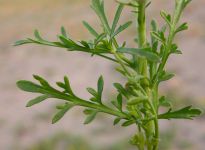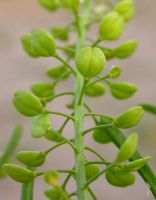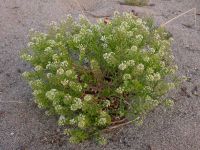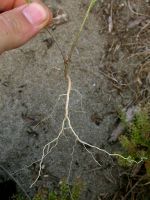Distribution: Occurring chiefly west of the Cascades crest in Washington; British Columbia to California, east across most of North America to the Atlantic Coast.
Habitat: Beach strand, grassy balds, grasslands, and other open areas at low elevations.
Flowers: March - December
Origin: Native
Growth Duration: Annual
Conservation Status: Not of concern
Pollination: Bumblebees, bees, flies, beetles, wasps
Sparsely to densely pubescent annual or biennial, the freely-branched stem 1.5-6 dm. tall.
Basal leaves from toothed to nearly pinnate, oblanceolate, 5-15 cm. long and 1-5 cm. broad; cauline leaves gradually reduced upward and often entire.
Inflorescence of numerous, elongate, many-flowered racemes; pedicles slender, terete, longer than the fruits; sepals 4; petals 4, white, 1-3 mm. long; stamens 2; style lacking.
Silicles elliptic-rotund to nearly orbicular, 2.5-4 mm. long, strongly obcompressed, glabrous, shallowly notched.
Publication: Sp. Pl. 2: 645. 1753.
-
ssp. menziesii – coastal peppergrass, hairy peppergrass
 Occurring chiefly west of the Cascades crest in Washington; British Columbia to California, east across most of North America to the Atlantic Coast.
Occurring chiefly west of the Cascades crest in Washington; British Columbia to California, east across most of North America to the Atlantic Coast. - ssp. virginicum – tall peppergrass Occurring chiefly west of the Cascades crest in Washington; British Columbia to California, east across most of North America to the Atlantic Coast.
PNW Herbaria: Specimen records of Lepidium virginicum in the Consortium of Pacific Northwest Herbaria database
WA Flora Checklist: Lepidium virginicum checklist entry
OregonFlora: Lepidium virginicum information
E-Flora BC: Lepidium virginicum atlas page
CalPhotos: Lepidium virginicum photos

